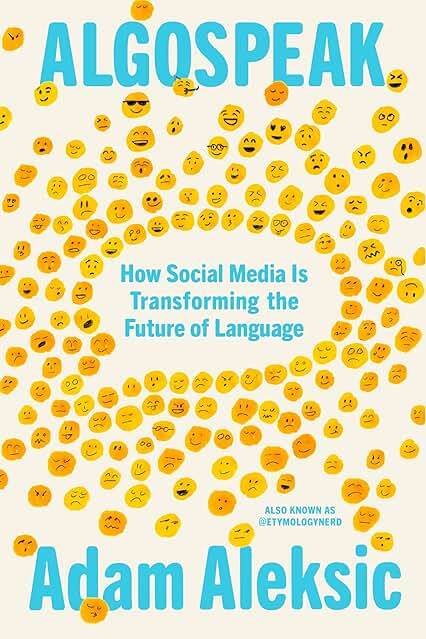DigitalRob@ramblingreaders.org reviewed Algospeak by Adam Aleksic
How The Algorithm "Flanderized" My Brain
4 stars
Well, this book is a bit of a mind-bender, and I mean that in the best way. If you’ve ever found yourself wondering why everyone online suddenly sounds the same or how you ended up in a weirdly specific TikTok niche, this is the book for you. Aleksic lays out, in pretty clear and terrifying detail, exactly how platforms are teaching us to talk—and think—differently. It’s a fast-paced look at everything from how "unalive" made the jump from a Spider-Man comic to a real-world vocabulary word, to the "chilling effect" that shadow-banning has on what people are (and aren't) willing to say.
The single most interesting—and kinda creepy—takeaway for me was this: the algorithm isn't just watching you to learn what you like. It's actively changing you. It feeds you content from a specific niche, and then more, and then more, until it's basically helped create your identity. You …
Well, this book is a bit of a mind-bender, and I mean that in the best way. If you’ve ever found yourself wondering why everyone online suddenly sounds the same or how you ended up in a weirdly specific TikTok niche, this is the book for you. Aleksic lays out, in pretty clear and terrifying detail, exactly how platforms are teaching us to talk—and think—differently. It’s a fast-paced look at everything from how "unalive" made the jump from a Spider-Man comic to a real-world vocabulary word, to the "chilling effect" that shadow-banning has on what people are (and aren't) willing to say.
The single most interesting—and kinda creepy—takeaway for me was this: the algorithm isn't just watching you to learn what you like. It's actively changing you. It feeds you content from a specific niche, and then more, and then more, until it's basically helped create your identity. You think the algorithm "gets you," but in reality, it built you as a perfect consumer for a specific set of products or ideas. It’s a wild thought, and after reading this, it's hard to un-see.
My other favorite concept was "Flanderization," which is a perfect word for what's happening online. It’s the idea that algorithms reward the most extreme and simple behaviors, so influencers and even entire subcultures get simplified into shallow, one-note parodies of themselves (like Ned Flanders). This explains so much, from the fake "influencer accent" to the endless explosion of micro-genres like "cottage-core." It's all part of the "enshitification" of the internet, where we're all being neatly categorized for easier surveillance and marketing.
This book is a fantastic guide to the new linguistic world we're all trapped in. It gives a name to all the bizarre things we see every day, and it does it in a way that’s engaging and, frankly, a little alarming. The final chapter asks, "Are we cooked?" The answer seems to be a... "maybe?"

